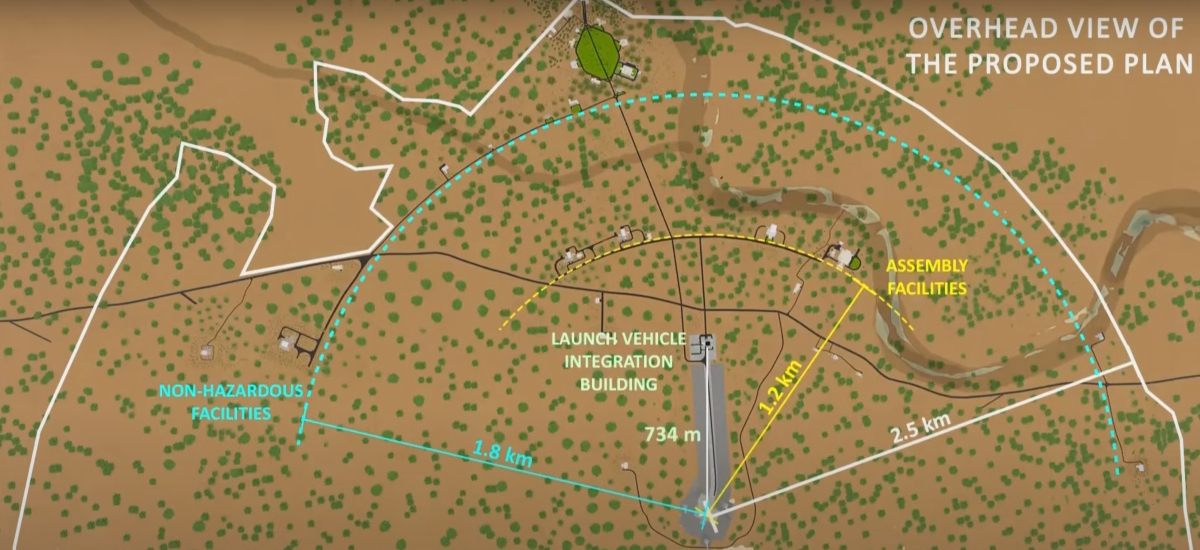
The Indian Space Research Organisation (ISRO) has received the go-ahead to construct a new spaceport in Tamil Nadu, with which it aims to help private players launch small rockets in space with less fuel consumption.
On Wednesday, Prime Minister Narendra Modi laid the foundation stone for the second spaceport, located on an island named Kulasekharapatnam off the southern state of Tamil Nadu. It will be second after the space agency’s existing Satish Dhawan Space Centre, founded in Andhra Pradesh’s Sriharikota in 1971, with two launch pads.
The spaceport will be dedicated to launching smaller launch vehicles and will be ready in about two years, ISRO chairman S Somanath said on the sidelines of the event in Tamil Nadu. Smaller rockets are cheaper to launch and, like Rocket Lab’s Electron, have shown that they can be a reliable and affordable way to get to space outside of sharing a ride with several other payloads.
Even though the new spaceport is not ready for private launches, ISRO launched its two-stage sounding rocket Rohini (RH – 200) from Kulasekharapatnam on Wednesday evening (local time) using a mobile launch pad to mark the development.
Spread over 2,350 acres, the Kulasekharapatnam spaceport will help save fuel for small rocket launches as the port can launch rockets directly south over the Indian Ocean without requiring crossing landmasses. This is unlike the existing launch site at the Satish Dhawan Space Centre, which adds more fuel requirement for launching into a polar orbit as rockets need to follow a curved path to the south to avoid Sri Lanka’s landmass.

Image Credits: PIB India
The new spaceport is in development with an investment of $119 million (986 crores Indian rupees) and is designed to conduct 24 launches per year using a mobile launch structure.
For the last few years, India has actively been growing its participation in space developments. The South Asian nation has around 190 space tech startups that offer a variety of solutions for customers around the world, including launch vehicles, hyperspectral imagery and space situational awareness, among others. ISRO is also working rigorously to expand the country’s presence in the global space ecosystem. Last year, the space agency gained worldwide attention for successfully landing its lunar spacecraft on the moon’s south pole and launching its coronagraphy spacecraft Aditya-L1 to observe the sun’s upper atmosphere. Further, ISRO partnered with NASA to join the Artemis Accords and work on a joint mission to the International Space Station.
Earlier this week, Modi announced four astronaut-elects, namely Group Captain Prashanth Balakrishnan Nair, Group Captain Ajit Krishnan, Group Captain Angad Pratap and Wing Commander Shubhanshu Shukla, for the country’s first human spacecraft mission Gaganyaan, scheduled for 2025. The three-day mission will set the pace for sending its first astronaut to the moon in 2040.
Last year, India introduced its space policy to detail guidelines for private participation. The country also recently updated its foreign direct investment policy with raised limits for overseas investments in space developments.
“This facility will play an instrumental role in accommodating the increasing launch frequency of both ISRO and the growing private space industry in the coming years. We believe that India’s strategic investment in additional spaceports will position the nation to significantly enhance its launch service capabilities, fostering greater international collaboration and solidifying its status as a global space power,” said A.K. Bhatt, director general of the Indian Space Association.
